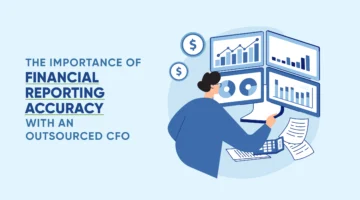Building Business Resilience with Accounting Agility
Change is constant in today’s dynamic business environment, and uncertainties can arise anytime. To navigate these challenges and thrive in adversity, business owners must embrace resilience as a core attribute of their organizations. A crucial aspect of achieving business resilience is accounting agility.
Understanding Accounting Agility
What Is Accounting Agility?
Accounting agility refers to the ability of a business to adapt and respond swiftly to changing financial conditions, market dynamics, and unexpected challenges. It involves maintaining a flexible financial framework that allows for rapid adjustments in financial strategies, resource allocation, and decision-making. In essence, accounting agility is the capacity to make informed financial choices in real time, ensuring that the organization remains resilient and capable of thriving in varying circumstances.
Key Components of Accounting Agility
- Financial Strategy Flexibility: Accounting agility necessitates a dynamic financial strategy that can be adjusted as needed. Business owners should be prepared to reevaluate and adapt their financial plans in response to evolving conditions.
- Efficient Data Management: Timely access to accurate financial data is paramount. Accounting agility relies on up-to-date financial information to support decision-making processes.
- Risk Assessment and Mitigation: Proactively identifying and mitigating financial risks, such as market volatility or cash flow disruptions, are vital to maintaining resilience.
- Responsive Technology: Modern accounting tools and technologies, including cloud-based solutions and automation, enable businesses to respond quickly to financial challenges.
The Benefits of Accounting Agility
Real-Time Decision-Making
One of the primary benefits of accounting agility is the ability to make informed decisions in real time. Business owners can access up-to-the-minute financial data and adjust their strategies promptly. This agility allows for a proactive response to financial opportunities and threats, ensuring the organization stays ahead of the curve.
Adaptation to Market Changes
In today’s fast-paced markets, change is constant. Accounting agility enables businesses to adapt swiftly to shifts in customer preferences, market trends, and economic conditions. Businesses can remain competitive and resilient by adjusting financial strategies and resource allocation in response to changing circumstances.
Financial Risk Mitigation
Financial risks are inherent in business operations. Accounting agility empowers business owners to identify potential risks early and develop mitigation strategies. Whether it’s managing credit risk, liquidity risk, or supply chain disruptions, agile financial practices can help minimize the impact of these challenges.
Improved Cash Flow Management
Effective cash flow management is critical for business resilience. With accounting agility, businesses can closely monitor cash flow, identify potential cash shortages, and take timely actions to address them. This ensures the organization can meet its financial obligations, including payroll and supplier payments, even during challenging times.
Strategic Resource Allocation
Agile accounting practices allow for strategic resource allocation. Business owners can allocate resources to areas that are performing well or pivot resources away from underperforming segments. This adaptive resource allocation ensures that the organization remains efficient and resilient.
Enhanced Transparency and Accountability
Accounting agility promotes transparency in financial reporting. Transparent financial practices build trust with stakeholders, including investors, customers, and employees. A reputation for financial transparency enhances credibility and fosters confidence in the business, which is essential for resilience.
Building Resilience through Accounting Agility
Embrace Technology
Invest in modern accounting technologies and software that enable real-time data access and automation. Cloud-based accounting solutions, financial analytics tools, and AI-driven platforms can provide valuable insights and streamline financial operations.
Develop Scenario Plans
Create financial scenarios that anticipate potential challenges and opportunities. Planning for various contingencies can prepare your organization to respond effectively when unexpected events occur.
Monitor Key Performance Indicators (KPIs)
Establish and closely monitor financial KPIs that provide insight into the health of your business. Regularly assess these metrics and use them to inform your financial decisions.
Seek Professional Guidance
Consider enlisting the expertise of financial advisors or consultants who specialize in agile financial management. Their experience and insights can help you implement effective strategies for building resilience.
To harness the full potential of accounting agility, consider partnering with NOW CFO financial experts. Our expertise and insights can help you assess and enhance your accounting agility, ensuring your organization remains agile, adaptable, and poised for long-term success in a dynamic business world. In an era where adaptability is the key to survival, NOW CFO is your strategic ally on the path to greater resilience and prosperity.



